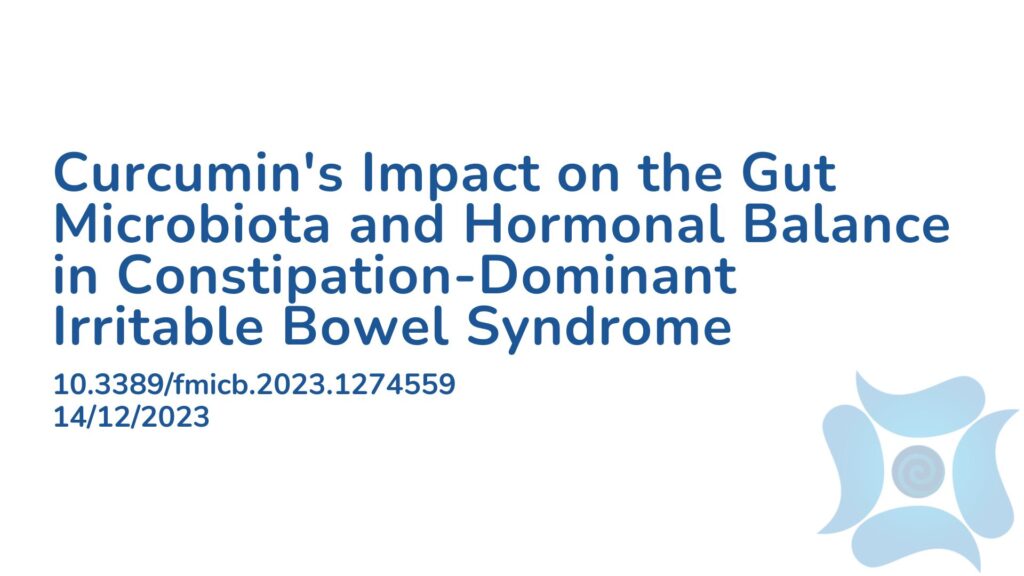Summary:
Constipation-dominant irritable bowel syndrome (IBS-C) is a functional bowel disorder characterized by disrupted bowel habits and recurrent abdominal pain. While not posing a significant mortality risk, it significantly impacts an individuals quality of life. The cause of IBS involves complex factors such as genetics, diet, gut function, gut microbiota imbalance, hormones, and psychological factors. Recent research explores the role of the gut microbiota in IBS-C development, with imbalances potentially influencing gut habits and serotonin signaling. Curcumin, the active component in turmeric, exhibits anti-inflammatory, antioxidant, and antidepressant effects. Studies suggest that curcumin can modulate neurotransmitter levels, including serotonin, and positively impact the gut microbiota, presenting a potential therapeutic effect on IBS-C. This study aimed to investigate curcumin’s impact on the gut microbiota and neurotransmitter levels in IBS-C rat models. The results showed that rats receiving curcumin supplementation had improvements in fecal weight, small intestine transit rate and significant reductions in serum levels of hormones. Curcumin also made changes to the level of certain strains of bacteria. The paper therefore concluded that there was an observed effectiveness of curcumin in IBS-C and that it may be attributed to its ability to modulate the microbiota and decrease serum levels of hormones.
Abstract:
Introduction: Constipation-predominant irritable bowel syndrome (IBS-C) is a functional bowel disease that affects 10–20% of the population worldwide. Curcumin (CUR) is widely used in traditional Chinese medicine to treat IBS, but its mechanism of action needs further investigation. Methods: In this study, we used mosapride (MOS) as a positive control to evaluate the changes in gut microbiota in IBS-C rat models after treatment with CUR or MOS by analyzing 16S rDNA variation. In addition, we used enzyme immunoassay kits and immunohistochemical analysis to investigate whether CUR or MOS influenced serotonin (5-HT), substance P (SP), and vasoactive intestinal peptide (VIP) levels in the serum and colon of IBS-C rats. Results: The study showed that rats supplemented with CUR showed significantly increased fecal weight, fecal water content, small intestine transit rate and significantly decreased serum levels of 5-HT, VIP and SP compared to the IBS group (p < 0.05). In addition, treatment with CUR changed the relative abundance of Blautia, Sutterella, Acetanaerobacterium and Ruminococcus2 in the gut microbiota. Discussion: This study showed that the efficacy of CUR on IBS-C was possibly by modulating the microbiota and lowering the serum levels of HT, SP, and VIP.
Article Publication Date: 14/12/2023
DOI: 10.3389/fmicb.2023.1274559



